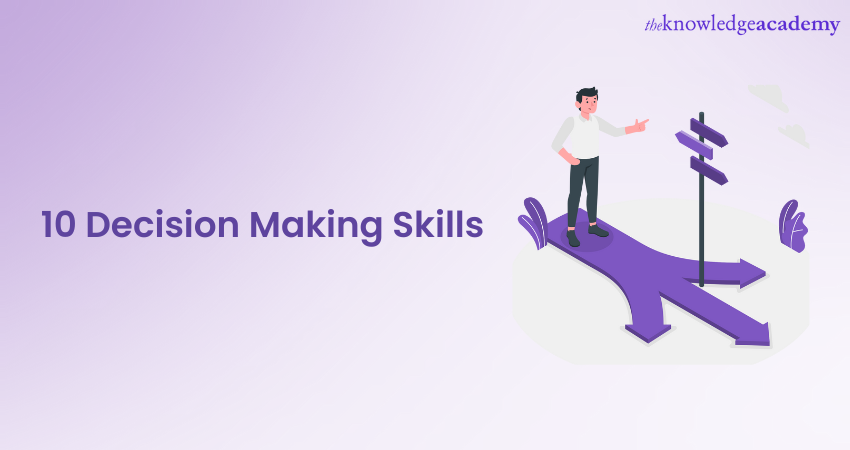This Psychological Aspects Behind Efficient Selection Processes
In our fast-paced environment, the capability to formulate effective decisions is increasingly critical than ever. Whether we are faced with minor choices, like which to have for the first meal of the day, or significant transformative decisions, such as switching careers, the method of making decisions can be both enriching and overwhelming. Mastering the art of smart decision-making not only improves our personal and professional lives but also shapes the outcomes we experience on a regular basis. Understanding the mental processes behind great decisions can offer us with important understandings into our cognitive functions and behaviors, allowing us to form choices that align with our values and goals.
As we delve into this topic, we'll investigate ten proven strategies that can enhance your decision-making skills, equipping you to confront difficult choices with assurance. We'll examine the importance of intuition and analytical thinking, the importance of social intelligence, and strategies to prevent decision fatigue. From gaining the skill to analyze alternatives effectively to recognizing the concealed costs of indecision, this article will offer practical tools aimed at enhancing your decision-making process. Join us as we uncover how to make better decisions under pressure and empower ourselves to navigate life's complexities with clarity and intent.
Methods for Effective Decision-Making
Taking intelligent decisions is a capability that can be developed through repetition and the use of tested techniques. One of the most effective methods is to use decision-choosing frameworks. These frameworks lead individuals through a structured process, decreasing ambiguity and increasing clarity. Common frameworks include the Pros and Cons List, the SWOT Analysis, and the Decision Matrix, which help in dividing down complex choices into feasible components. By arranging thoughts and weighing options in a methodical manner, one can steer through choices with greater confidence.
Another valuable technique is to develop emotional intelligence, particularly in understanding and regulating emotions during decision-choosing. Emotions can greatly influence our decisions, occasionally leading to rash decisions or undesirable outcomes. By identifying emotional triggers and learning to regulate them, individuals can evaluate situations with greater objectively. Additionally, slowing down the decision-choosing process through techniques such as mindfulness allows for a sharper perspective, facilitating better evaluations of the possible outcomes.
Finally, cultivating a habit of reflecting from past decisions is essential for enhancing future choices. Reflecting on both successful and unsuccessful decisions provides insights into patterns that can be improved for superior outcomes. Keeping a decision journal can be an effective tool; it helps record decisions made, the thought processes involved, and the results. Over time, this practice fosters self-awareness and improves decision-making skills , ultimately leading to more informed and confident choices.
Understanding the Psychology of Decisions
The process of decision-making is deeply rooted in the study of human behavior, influencing how people assess choices and formulate choices. Cognitive biases play a significant part, often resulting in irrational choices based on sentiment rather than reason. For illustration, the tendency to seek confirming information can lead people to prefer information that supports their existing views, while ignoring information that contradicts them. By comprehending these cognitive distortions, people can strive to reducing their effects and making better decisions.
Another crucial aspect is the emotional element of decision-making. Emotions can cloud decision-making, yet they also provide valuable insights into individual values and desires. Emotional intelligence becomes key, as it empowers individuals to recognize and control their emotions when faced with difficult decisions. This skill not only helps in choosing choices that are in line with personal goals but also encourages resilience in dealing with the anxiety of making incorrect choices.
Additionally, the setting in which choices are made substantially impacts consequences. High-pressure situations can lead to impulsive and possibly poor decisions, while a relaxed environment promotes better thoughtful thinking. Methods such as mindfulness and deliberate time-outs can boost mental clarity and enable more effective assessment of options. By intentionally developing a favorable decision-making context, people can improve their thinking skills and ultimately better their general decision-making abilities.
Approaches for Assured Decision-Making

Establishing confidence in making choices starts with recognizing your values and goals. By clearly defining what matters most to you, you establish a foundation that shapes your decisions. Contemplate on your future aspirations and synchronize your decisions with your core beliefs. This not just simplifies the decision-making process but also boosts your self-trust, as you can believe that your decisions resonate with your authentic self.
Another efficient strategy is to collect pertinent data while avoiding excess information. Focus on acquiring data that specifically impacts your choice and consider various viewpoints. This measured approach helps you arrive at knowledgeable choices without succumbing to analysis paralysis. Creating a structured approach for evaluating options, such as pros and cons lists or choice matrices, can also enhance clarity and reduce doubt in your decisions.
Finally, practicing mindfulness can greatly enhance your decision-making prowess. By cultivating awareness of your thoughts and emotions, you can distinguish between logical judgment and fear-driven reactions. Allowing a moment to stop and breathe before executing a decision enables you to approach choices with a clear mind. This routine not only reduces anxiety but also results in more considered and confident choices, ultimately empowering you to embrace the decision-making journey.